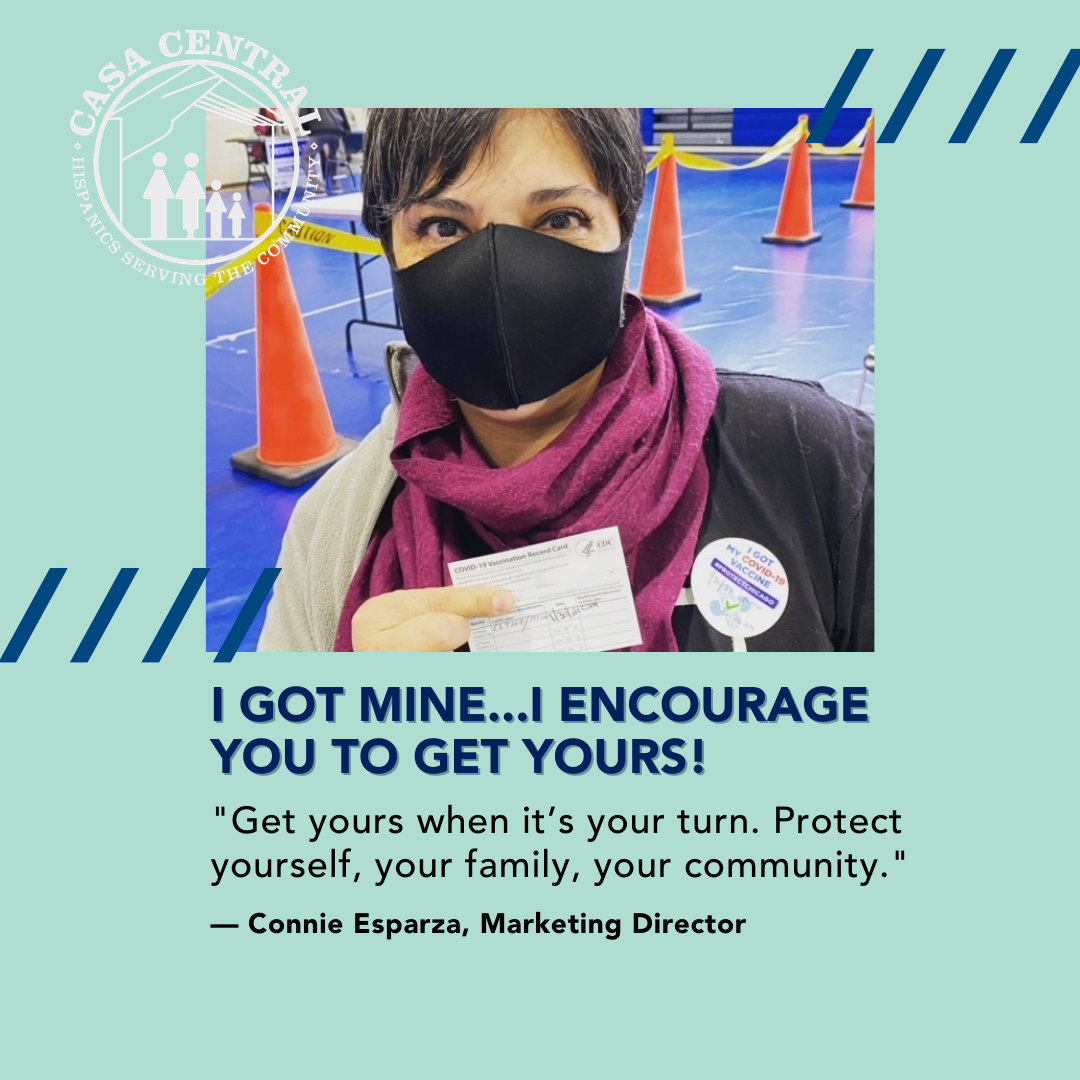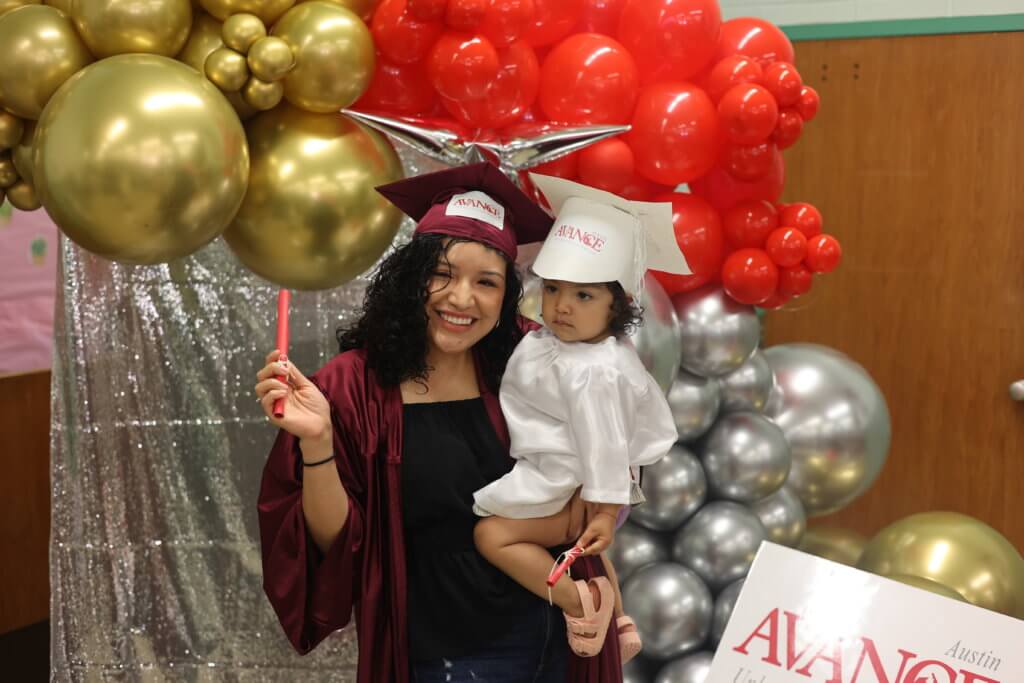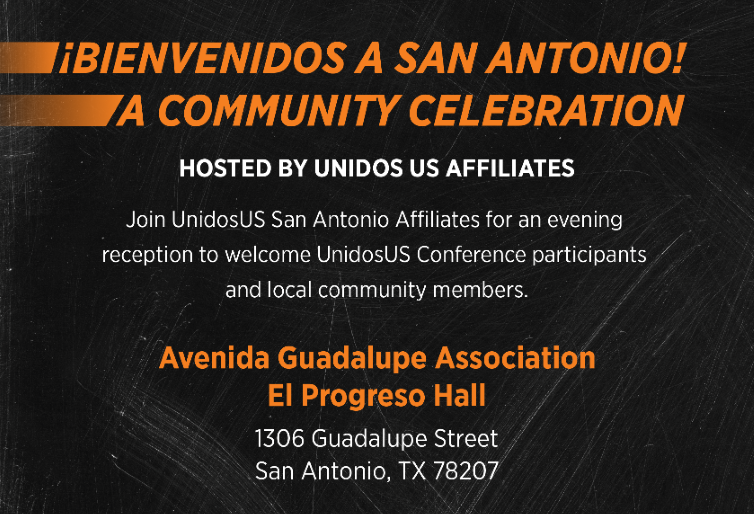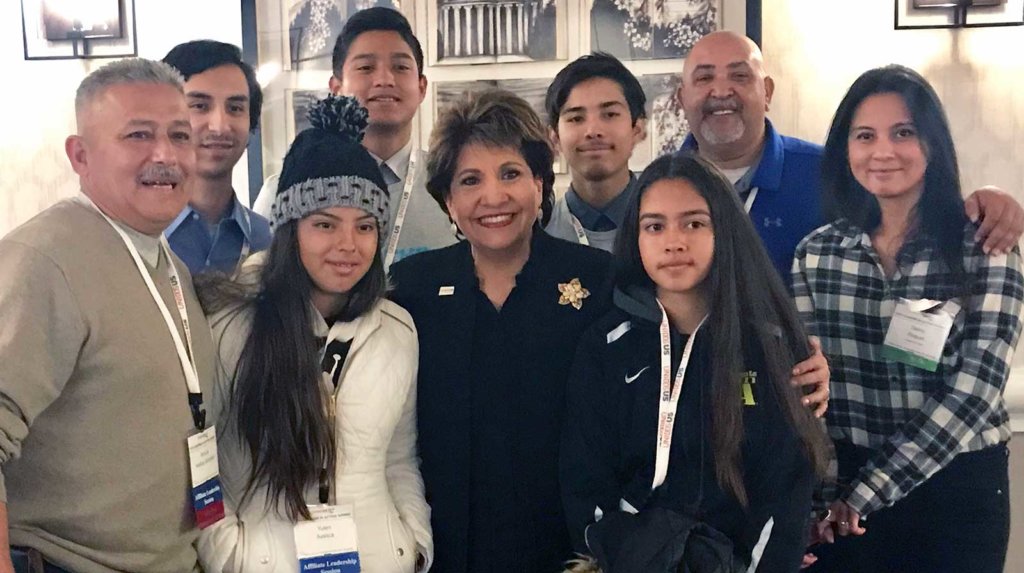Our Affiliates set an example: they are getting vaccinated
“I feel blessed. I am so excited.” These are the words Daniel Michel, Enlace Chicago’s emergency response team member, used to describe the moment he was going to get his COVID-19 vaccine. Michel has kids at home and he wants to ensure they are protected. He understands the hesitancy Latinos feel to get the vaccines, which, according to a poll released in December, is due to a lack of confidence in the information they’ve received. However, Michel couldn’t wait to get his shot.
He and his team, which includes this UnidosUS Affiliate’s street outreach and safe passage workers and promotores de salud, received their first dose on January. Our Affiliates Gads Hill Center and Casa Central’s staff also belong to the essential workers category, and these organizations are working on their own staff’s skepticism around the COVID-19 vaccines so they can become examples for the community they serve.
By Beatriz Paniego-Béjar, Content Specialist, UnidosUS
Although the COVID-19 pandemic has disproportionately affected Blacks and Hispanics, the vaccines rollout hasn’t reached these populations at the same rate as for Whites. A study on 14 states found that vaccine coverage is twice as high among White people on average than it is among Blacks and Latinos; and, nationwide, only 12% of those vaccinated in the first rollout of the vaccine were Hispanic.

In Chicago, where UnidosUS Affiliates Enlace Chicago, Gads Hill Center (GHC), and Casa Central are located, Hispanics have accounted for more coronavirus cases than any other demographic, and officials in the area were concerned about the equitable distribution of the vaccines from the beginning. Our Affiliates were too, and now, they not only have to deal with the shortage of vaccines for our population, but they also have to deal with the distrust Latinos have for these vaccinations.
Katya Nuques, Enlace’s Executive Director, spoke to the media about these issues: “You basically have to do two things at the same time. One is to educate a community,” she said, “On the other hand, you need to provide the availability and to provide the vaccine and those two things are not connected.”
While advocating to ensure the vaccines get to our communities, our Affiliates are focusing on the education piece as well, starting with their own staff.
Grassroots case management
Thirty percent of Hispanics and 40% of Blacks are “vaccine hesitant.” There are four key predictors of intention to get vaccinated, according to a COVID Collaborative study: belief in the safety and efficacy of the vaccines, social norms (people close to them want them to get vaccinated), moral norms (getting vaccinated is a social need rather than just a personal preference), and the perceived risk of catching the virus. This is the starting point that most Affiliates are working from.
View this post on Instagram
It is key that the encouragement to get vaccinated is pursued in community and culturally rooted approaches, reason why our Affiliates are putting a lot of emphasis in educating their frontline staff about the safety of the vaccines, since they are the ones who have developed close relationships with the community they serve, making them a trustworthy source of information.
Maricela García, Gads Hill Center CEO, shares that 55% of their staff is ready to get vaccinated, 15% is not, and 35% is not sure. “The 35% needs more information to make a final decision. As such, GHC has partnered with community clinics to provide information sessions in English and Spanish to our staff about the facts of the vaccine and to answer questions. This is to counteract the effect of the misinformation widely available through social media.”
UnidosUS Affiliate Casa Central is also fighting this misinformation. They realize they need to provide their employees with sufficient evidence for them to consider the vaccination: they are working with doctors at Loyola Medical School to discuss the facts and myths about the vaccines. “It’s critical to arm our employees with enough information to help facilitate conversations about the vaccines with their [programs] participants,” Casa Central shared, because “it really boils down to grassroots case management.”
Leading by example
View this post on Instagram
After dealing with their own staff’s skepticism, Enlace Chicago created this vaccination video “in an effort to dispel some of [the vaccines] myths.”
“We also hoped it would encourage more people to vaccinate if they saw other community members, like themselves, getting the vaccine,” they added.
The video, which they released last month, features their Emergency Response Team members getting the vaccine and explaining why they decided to get the shot: “It is important for us to share trusted information from public health officials regarding the virus and vaccination,” Enlace noted. They are in the Little Village neighborhood, one of the hardest hit areas in the state of Illinois, and through their education work, “[m]ore and more we are hearing people who want to receive the vaccine.”
With the hopes of encouraging her reluctant staff to get vaccinated, Gads Hill Center CEO Maricela García received her shot this month at another UnidosUS Affiliate, Alivio Medical Center: “I asked a nurse to take the picture to motivate my staff,” García says.
Our CEO Maricela García showing excitement about getting her first round of vaccinations!
Shout out to Alivio Medical Center for their service to the community!#GadsHillCenter #covid #staysafe pic.twitter.com/sM6xEIFenC
— Gads Hill Center (@gadshillcenter) February 2, 2021
This image has been displayed all over Gads Hill Center social media channels too, with the goal of reaching their followers to improve their community’s confidence on the COVID-19 vaccines. “[They] are critical to build a safe work environment and workforce stability,” García says.
Her organization is also located in the Chicago neighborhoods that have seen the highest numbers of COVID-19 cases and deaths, and the parents they serve are essential workers that have not stopped working during the pandemic: “Under strict safety protocols, our centers have been opened to support the working families that need early education program for their children to allow them to continue working,” she shares, but in spite of all those measures, Gads Hill Center has faced multiple coronavirus cases among staff, children, and families, leading to the closure of classrooms and sometimes the entire facility.
Getting back to the moments we miss
Our Affiliates are the gates to our community, those who have already built a trustworthy relationship with their clients and who can empathize with their hesitancy and acknowledge that it’s okay to have questions, who can explain in an honest and plain way why vaccines are safe, and who can highlight that vaccinations are one of the solutions to help us get back to the moments we all miss the most, being connected to our loved ones.
To help our Affiliate Network in this endeavour, UnidosUS is releasing weekly bilingual videos on Instagram and Facebook that answer common questions about the COVID-19 vaccines.
Only together we can put an end to the pandemic. Do your part: wear your mask, stay six feet away from those outside of your household, wash your hands often, and get your vaccine as soon as you can.
For the most accurate and up-to-date information on the COVID-19 vaccine, connect with local allies such as our Affiliate Network, and visit UnidosUS’s COVID-19 resource page in English y español.



